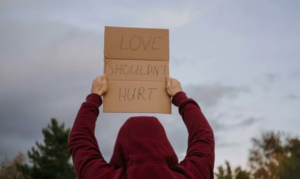In 2023, every 10 minutes, partners or other family members intentionally killed a woman, according to a United Nations report.
When we consider that in Greece alone, 12 women have been murdered by men in their environment in 2024, we understand that the crisis of gender-based violence is more urgent than ever.
Therefore, during the 16 Days of Activism against Gender-Based Violence, the annual international campaign starting on November 25, the International Day for the Elimination of Violence against Women, and lasting until December 10, Human Rights Day, the UNiTE campaign draws attention to the alarming escalation of violence against women with the theme: “Every 10 minutes, a woman is killed. #NoExcuse. UNiTE to end violence against women.”
Nearly one in three women experiences violence in her lifetime. Girls are particularly at risk – one in four teenage girls is abused by their partner.
For at least 51,100 women in 2023, the cycle of gender-based violence ended with a final and brutal act – their murder by partners and family members.
Evidence of the Need for Action
Femicide is the ultimate proof that the systems and structures intended to protect women and girls are failing. The normalization of violence—from domestic abuse to workplace harassment, public space harassment, and digital violence—creates a cultural climate where women are abused and intentionally killed, with perpetrators often going unpunished.
Women and girls are at a higher risk of being murdered at home—55% of all femicides in 2022 were committed by intimate partners or family members, while only 12% of all male homicides were committed by family members.
Women are not safe even outside their homes. Women in the public eye, including politicians, human rights defenders, and journalists, are often targeted for intentional acts of violence both online and offline, with some of these leading to fatal outcomes and deliberate killings.
Studies show that 16 to 58% of women worldwide experience gender-based violence facilitated by technology, with younger women particularly affected.
Women in conflict zones, wars, and humanitarian crises are even more vulnerable—70% of them experience gender-based violence.
Gender-based violence can be prevented and fought—if we all move in that direction. Both political leaders, organizations, and each of us individually can contribute by either implementing stricter policies or speaking out openly on the issue, spreading anti-violence messages, and ultimately eliminating violence.
Ask me anything
Explore related questions





